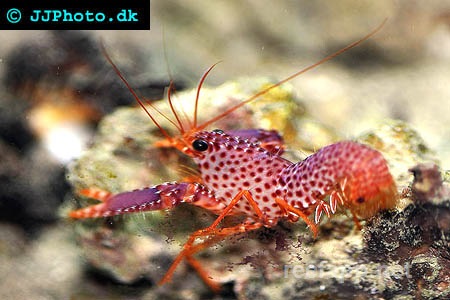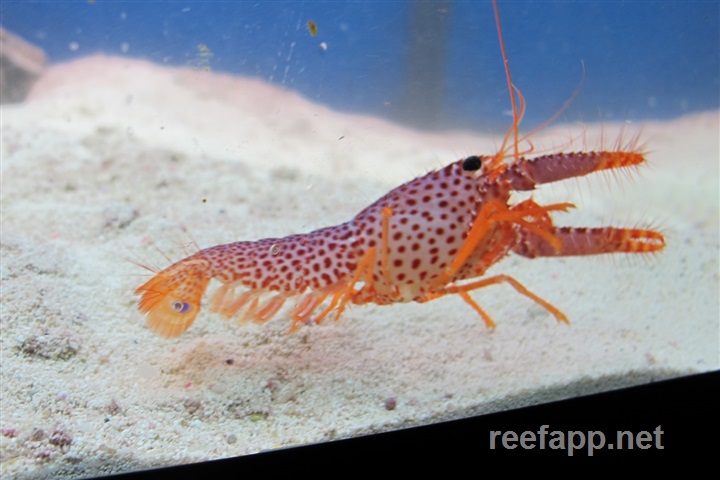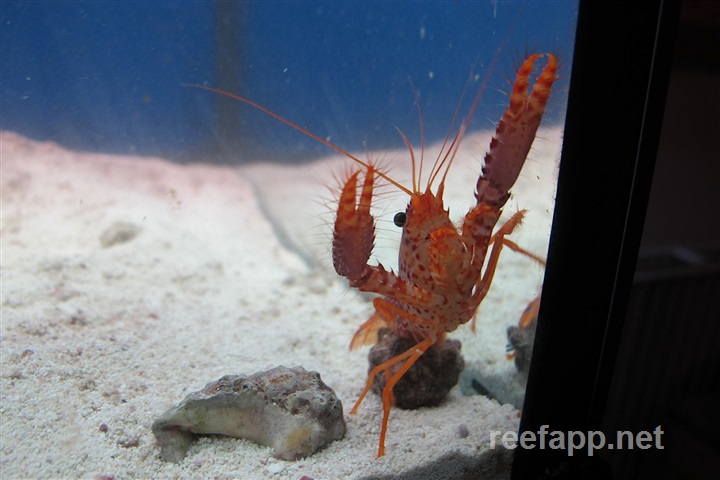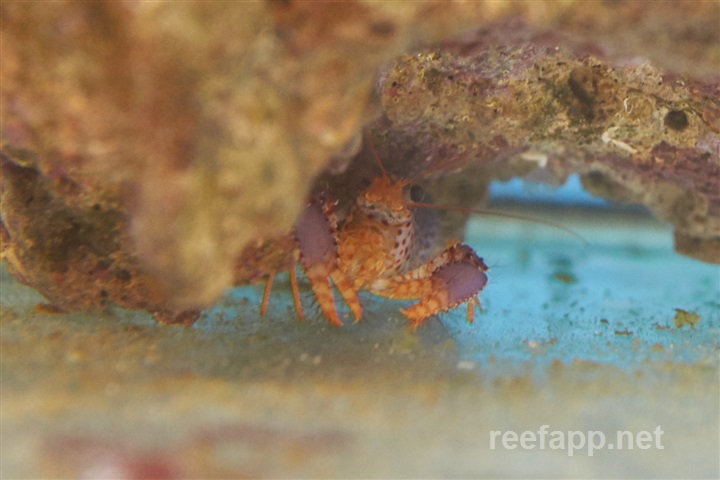Enoplometopus daumi




| Latin name | Enoplometopus daumi |
|---|---|
| Local name | Daum's Reef Lobster |
| Family | Enoplometopidae - Enoplometopus |
| Origin | Australia, Indonesia, Central/West Pacific |
| Max length | 15 cm (5.9") |
| Minimum volume |
200 l (53 gal) |
|---|---|
| Hardiness |
Hardy |
| Suitable for aquarium |
Suitable for most aquarium |
| Reef safe |
Reef safe with caution |
| Aggressiveness | Peaceful |
| Recommended |
Small crustaceans (Krill, mysis, artemia...) |
|---|---|
| Mostly |
Detritus |
This species may eat small fish and especially small shrimps, there are, however, some aquarists who manage to get them to coexist just fine.
This species has a habit of rearranging rocks and sand.
Make sure rocks are placed securely on the substrate, so they cannot toppled over.
This species needs good hiding places, for example, between live rocks.
This species is nocturnal and therefore the most active when the light is dimmed or turned off.
Reef lobsters (Enoplometopidae) can be very attractive, but one rarely sees them, as they only appear when it's dark. They are therefore most suited to aquarists who have a special liking for these animals.
Bob Fenner. Lobsters For Marine Aquariums? - Wet Web Media - (English)
Ronald L. Shimek. 2004. Marine Invertebrates (PocketExpert Guide) - TFH Publications / Microcosm Ltd. - (English)

